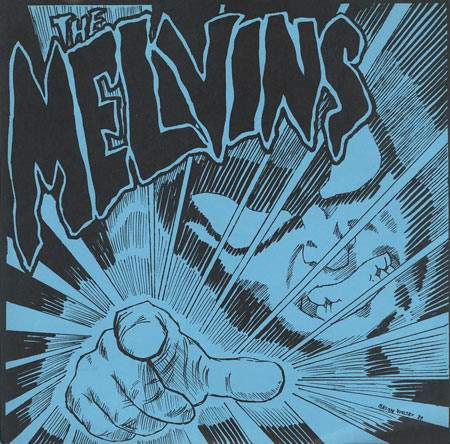While reading Gabriel Rockhill’s exposé on Slavoj Zizek what stood out to me a lot was the brief mention of postmodern philosopher Jacques Derrida being involved in “anti-communist political activism against the government in Czechoslovakia”.
While I’ve always known that Postmodernism is an enemy of Marxism, this makes it sound like postmodern philosophers are also feds. The source Rockhill cites for Derrida’s anti-communist praxis is the 1999 book The Velvet Philosophers by Barbara Day. Has anyone read this book? What specifically is said about the topic in it?
Postmodernism is not an enemy of Marxism, postmodernism is a really big umbrella term that contains many things, some of which are coherent with Marxism, and some of which not. In Derrida’s case and all of the similar thinkers, they are simply Western “leftists” who are functional to the status quo.
But all I hear about postmodernism is how it’s really idealistic and individualistic. Postmodern thinkers tend to reject “putting people into labels” which inevitably invariably includes class.
I wouldn’t be quick to take such general criticisms of entire philosophies too seriously. Just as you might see people struggling to criticize Marxism due to its breadth and depth, and because of the time needed to learn, same can be said of other ways of thinking. It’s easy to reduce things down and dismiss them, but in reality people utilize postmodernist and post structuralist thinking fairly routinely without ever reading Derrida.
frankly, there’s very little reason to read philosophy other than that which is rooted in dialectical materialism, unless you have a solid base and want to understand how and why other philosophies are wrong. general criticisms of entire philosophies are literally unavoidable due to the infinite complexity of reality, but you should understand the criticisms of postmodernism from the viewpoint of diamat before you truly believe them. imo these would be:
-
this should go without saying, but there is almost no reference to dialectics in most of these works. if there is, it expresses no understanding of dialectics.
-
claiming that there can be no ideology. there are many variants of this claim, what i tend to see today is skepticism towards ideology of the masses or of society at large. diamat understands ideology to be central to human experience
-
a laser-focus on the realm of the specific over the general. understanding the general or essence is actually more important to not just existence but also ideology development. the vast majority of western academia revolves around this. another way to think about this would be that it favors analysis over synthesis. this is also true in its analysis of society, which leads to an individualist understanding as you said.
-
fundamentally subjectivist. that is to say, that it often supposes that because we can never have 100% certainty regarding our understanding of the world, it brings every conclusion (even its own) into question. diamat understands that there is an objective world, and that while there is subjective human experience, there is an objective chasm between that subjective experience and the objective world. human struggle is to constantly make that chasm as small as possible, even if as it grows in response to human struggle.
-
like you said, an important criticism of postmodernism is that it’s idealist. more specifically, i would call it pretty consistently engaging in mysticism. because it’s fundamentally incorrect (due to the previous 4 points), it will usually pose many (usually inane) questions and come to the conclusion that reality is unknowable and no certainty can be had regarding reality. this is sometimes followed by a (non-declarative, as always) suggestion that supernatural or mystical elements are the reasons why things are the way they are. even when literal mysticism doesn’t occur, the vast majority of postmodern writings are also written horribly, in such a way as to mystify the topic at hand for the reader rather than to lead to any meaningful conclusions.
-
this is a bit of addendum, but postmodernists tend to either think that all of society is strictly cultural, or that the superstructure is always dominant over the base. this is why there’s a lot of obsession over things like language (“language is central to thought because we all think in language, therefore language and culture are central to human development”), as opposed to the diamat theory of knowledge.
of course, an important element is its history and why postmodernism exists as a superstructural ideology in the first place. postmodernism is a reaction to both the founding of socialist states (chiefly the USSR) as well as a response to both world wars that were ultimately caused by capitalism. it became quite difficult for capitalists to talk about how idyllic capitalism was when it embroiled the world in war, and nukes continued to threaten the world. consequently, it became much easier to allow everyone to criticize and be skeptical of capitalism, so long as they were also critical and skeptical of all existing socialist countries as well.
this later developed into what we have today, which is that you can say or do whatever you want, so long as you don’t actually threaten capitalist society at all. and of course the background of the cold war is also important to understand here too. postmodernism is, in essence, the superstructure of capitalism in decline, as a force that recognizes itself as no longer progressive. this is why many postmodernists were avid anticommunists, while also using marxist words/terminology, in an effort to confuse a new generation of leftists after the red scare. if you read any derrida regarding marx, it reads as incomprehensible and laughable gibberish and only serves to mysticize and mystify.
-
can you provide an example of postmodernist tendencies that are coherent with marxism? my understanding is that they are diametrically opposed. the claim that not all postmodernists are the same is often used by postmodernists to distance themselves from other postmodernists who are openly unsavory. and, there will always be differences between sects of a branch of philosophy, but this doesn’t mean they don’t come from the same branch. it’s just differentiating what the branch, or underlying similarity, is.
Anti communism can be explained with post structuralist and postmodern language. The communist, in conjunction with orientalist visions and bourgeoisie fears, is rendered a simulation that both replaces the communist with a bourgeoisie construction in a way that then even seeps into the heart of the actual communist and can cause an identity crisis which changes the quality of the communist. Thus we have the western marxist anti communist, a creation of liberal simulation of communism, a product of power and language, a refined weapon against class struggle.
I was thinking mainly in art, that’s why I said postmodernism is an umbrella term that can mean many different things depending on who’s saying it. I think the idea of deconstruction and new ways to analyze works can be adapted by Marxist thought. As another example I find Foucault’s readings on power interesting, and while it obviously has its flaws they should not be discarded completely. I guess my main point was that if you look at postmodernism in its mainly philosophical/sociological standpoint you will find it is in opposition to Marxist thought, but that this does not mean there are not valuable things to be learned from it, and that a full rejection of it is not something we should aspire to. This is usually the stance adopted by rightists who see postmodernism as the rejection of tradition, and while the reason to disagree with this are different for fascists and communists, there are still things that can be useful, in my opinion.
postmodern philosophers are not necessarily postmodernists. these philosophers are probably better considered as post-structuralists identifying their contemporary condition as postmodern. these philosophers frequently critique the postmodern condition, such as what Fredric Jameson said in chapter 1 of The Cultural Logic of Late Capitalism:
If the ideas of a ruling class were once the dominant (or hegemonic) ideology of bourgeois society, the advanced capitalist countries today are now a field of stylistic and discursive heterogeneity without norm. Faceless masters continue to inflect the economic strategies which constrain our existence, but they no longer need to impose their speech (or are henceforth unable to); and the postliteracy of the late capitalist world reflects not only the absence of any great collective project but also the unavailability of the older national language itself.
and
Theories of the postmodern - whether celebratory or couched in the language of moral revulsion and denunciation - bear a strong family resemblance to all those more ambitious sociological generalizations which, at much the same time, bring us the news of the arrival and inauguration of a whole new type of society, most famously baptized “postindustrial society”(Daniel Bell) but often also designated consumer society, media society, information society, electronic society, or high tech and the like. Such theories have the obvious ideological mission of demonstrating, to their own relief, that the new social formation in question no longer obeys the laws of classical capitalism, namely, the primacy of industrial production and the omnipresence of class struggle.





